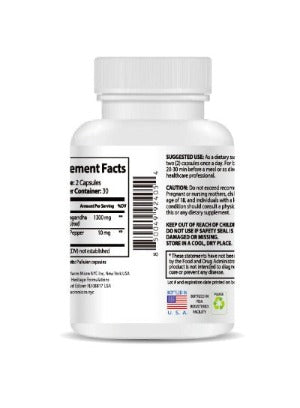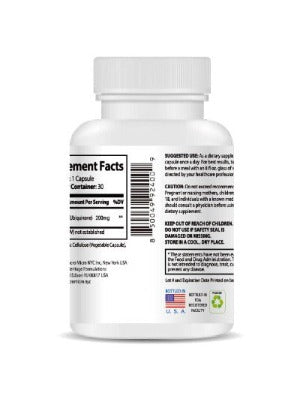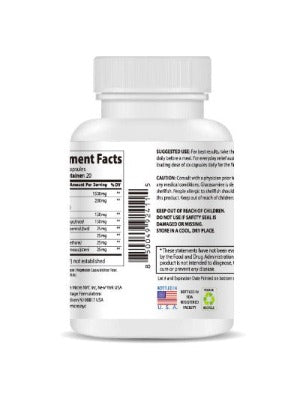In modern medicine, increasing attention is being given to the human microbiome, particularly the balance of the gut microbiome and its impact on health. The gut, often referred to as the "second brain," has an internal environment whose stability is crucial for the proper functioning of the entire body. Within this system, probiotics and digestive enzymes play indispensable roles, jointly maintaining gut health and function. This article delves into the functions of probiotics and digestive enzymes, their interactions, and how they collectively promote gut balance.

1. Gut Microbiome and Health
The gut microbiome comprises billions of microorganisms, including bacteria, fungi, viruses, and protozoa. Together, they form a complex ecosystem that influences host nutrient absorption, metabolism, and immune function. An imbalance in the gut microbiome, known as dysbiosis, has been linked to various health issues such as obesity, inflammatory bowel disease, and diabetes.
2. Functions and Mechanisms of Probiotics
Probiotics are live microorganisms that confer health benefits to the host. They maintain gut health through several mechanisms:
- Competitive Exclusion of Pathogens: Probiotics compete with pathogens for adhesion sites on the gut wall, preventing pathogen colonization and proliferation.
- Regulation of Gut Environment: Probiotics can alter the gut pH and produce antimicrobial substances, inhibiting harmful bacteria.
- Enhancing Gut Barrier: Probiotics stimulate the mucosal immune system, strengthening the connections between gut epithelial cells, thereby enhancing barrier function.
- Immune Modulation: Probiotics can modulate the host immune response, balancing the activity of Th1/Th2 cells.
3. Functions and Importance of Digestive Enzymes
Digestive enzymes are proteins that catalyze the breakdown of food during digestion, essential for nutrient absorption. They include:
- Amylase: Breaks down starch into sugars.
- Protease: Breaks down proteins into amino acids.
- Lipase: Helps break down fats into fatty acids and glycerol.
- Lactase: Breaks down lactose into glucose and galactose.
Normal secretion and activity of digestive enzymes are crucial for the thorough breakdown of food, ensuring effective nutrient absorption and utilization, and maintaining the stability of the gut environment.
4. Interaction Between Probiotics and Digestive Enzymes
There is a close interaction between probiotics and digestive enzymes, working together to maintain gut health:
- Probiotics Promote Digestive Enzyme Secretion: Some probiotics stimulate the host to secrete more digestive enzymes, improving food breakdown efficiency.
- Probiotics Produce Enzymes: Many probiotics, such as lactic acid bacteria, secrete digestive enzymes like lactase, aiding lactose-intolerant individuals in lactose breakdown.
- Digestive Enzymes Support Probiotic Function: Proper digestion ensures the production of short-chain fatty acids and other metabolites, which are important nutrients for probiotics.
5. Application of Probiotics and Digestive Enzymes in Gut Health
Supplementing with probiotics and digestive enzymes is used to treat and prevent various gut-related diseases. For example, probiotic supplements are commonly used to prevent and treat antibiotic-associated diarrhea, while digestive enzyme supplements can help individuals with pancreatic insufficiency or chronic pancreatitis improve digestion.
6. Future Research Directions
While the benefits of probiotics and digestive enzymes for gut health are widely recognized, their mechanisms and optimal application methods require further research. Future research should focus on:
- Personalized Medicine: Customizing probiotic and digestive enzyme treatments based on individual genetic backgrounds, lifestyles, and microbiome states.
- Combined Therapies: Exploring how to use probiotics and digestive enzymes synergistically for better treatment outcomes in specific conditions.
- Strain-Specific Effects: Studying the impact and therapeutic potential of different probiotic strains on specific health issues.
- Long-term Impact Assessment: Investigating the long-term effects of probiotic and digestive enzyme supplementation on human health, particularly the long-term effects on the gut microbiome.
- Preventive Role in Diseases: Further research on their potential preventive roles in diseases such as inflammatory bowel diseases, obesity, and cardiovascular diseases.
Probiotics and digestive enzymes are two key components of gut health. They play distinct but interrelated roles, collectively maintaining gut balance. Through mechanisms such as competitive exclusion of pathogens, regulation of the gut environment, enhancement of gut barriers, and immune modulation, probiotics provide the first line of defense for gut health. Digestive enzymes ensure efficient food breakdown and nutrient absorption, providing nutrients for probiotics while maintaining the dynamic balance of gut contents. Their interaction forms a mutually dependent, mutually promoting health support system.
Modern medical research is gradually revealing the importance of probiotics and digestive enzymes in gut health, offering more therapeutic possibilities for clinical practice. With the development of personalized and precision medicine, the application of probiotics and digestive enzymes will become more precise and effective. However, further research is needed to clarify the best combinations, doses, and treatment plans, as well as their safety and impact with long-term use. We have reason to believe that with deeper research and technological advancements, probiotics and digestive enzymes will play a more crucial role in maintaining human health and preventing and treating gut diseases.













